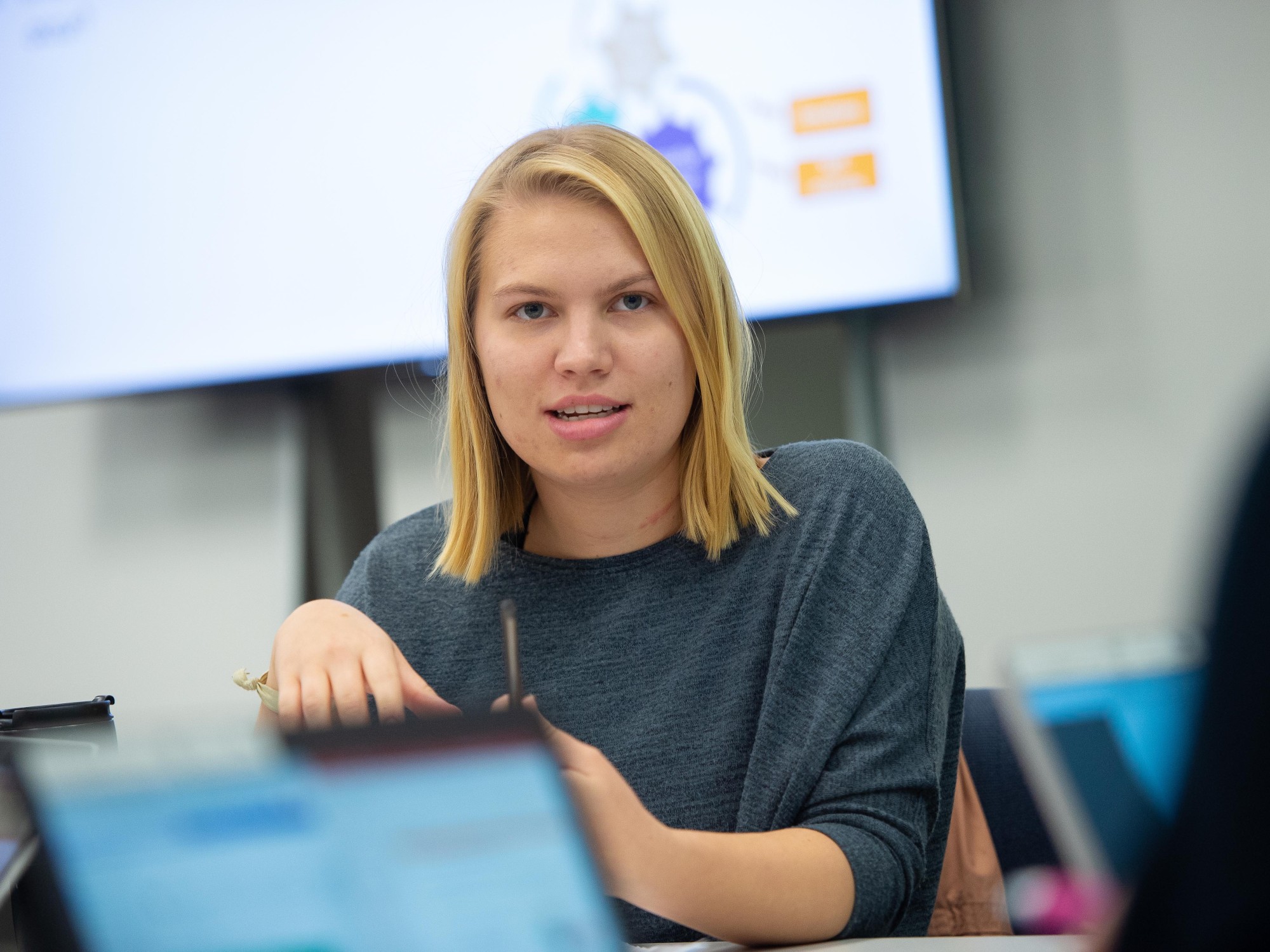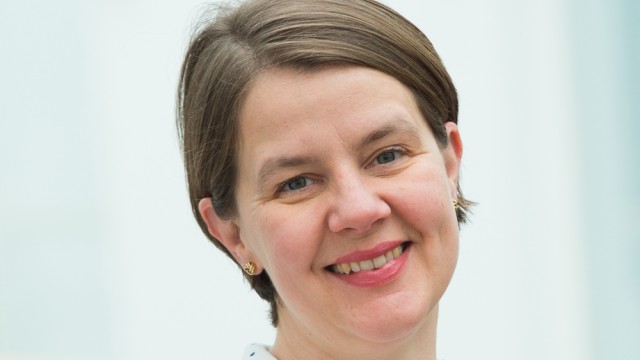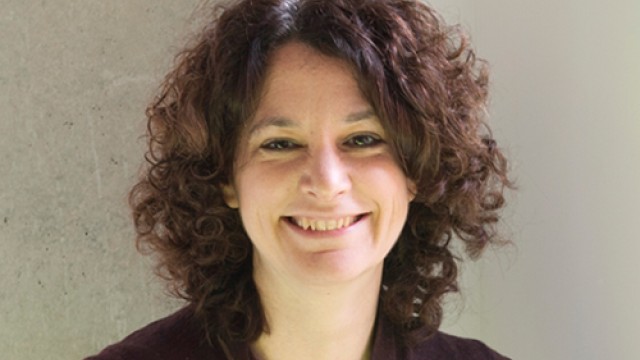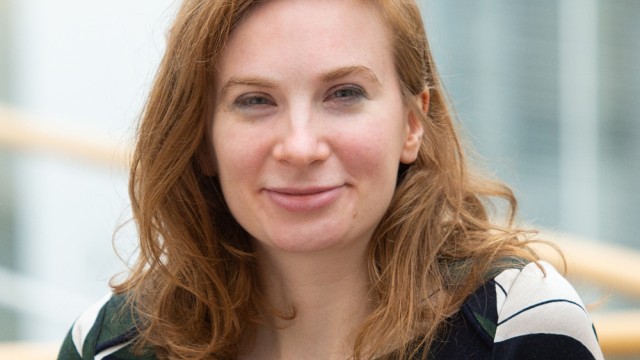
- Psychology
PhD Psychology
On our Psychology PhD, you'll contribute to research that’s focused on the application of psychology in the real world and train in advanced and innovative research methods.
Why choose this
programme?
- Benefit from our expertise in a breadth of qualitative and quantitative research methodologies using both subjective and biological assessments.
- Put theory into practice in our state-of-the-art facilities.
- Join a team of researchers who collaborate with research councils including the Economic and Social Research Council and the Biotechnology and Biological Sciences Research Council, as well as both EU and UK governmental departments.
Statistics
100%
Of our psychology research graduates are in employment or further education (Graduate Outcomes 2024, HESA)
Top 20 for research outputs
The University of Surrey is ranked in the top 20 for the quality of our research outputs (REF 2021)
33rd for overall research quality
The University's overall research quality ranking has risen by 12 places to 33rd in the UK (REF 2021)
What you will study
In your first year you’ll complete four compulsory training courses, covering quantitative and qualitative research methods, professional academic skills, and teaching and training. You’ll also familiarise yourself with relevant literature, create a research plan, develop your methodological and analytic skills, and complete your first study.
Throughout your studies, you’ll gain a solid grounding in research methods and improve your communication skills to effectively convey your findings. You’ll collect and analyse data, complete a detailed literature review and then write your PhD thesis. Depending on your research project, data collection can take place in schools, hospitals, laboratories or online.
Current students are researching topics including:
- Deficits in flexible thought in stroke aphasic patients
- How the natural environment, or representations of it, can be of benefit to individuals with mental health issues
- The role of positive and negative social support in weight loss maintenance
- Every day decision making and the role of heuristics
- If the pronouns ‘they/them’ can be used as genderless pronouns and what impact these may have on STEM subjects.
Conferences
Each year we run a postgraduate research conference where you’ll be able to present your work and network with fellow researchers. You can also attend external conferences that are relevant to your area of research.
Assessment
Your final assessment will be based on the presentation of your research in a written thesis, which will be discussed in a viva examination with at least two examiners. You have the option of preparing your thesis as a monograph (one large volume in chapter form) or in publication format (including chapters written for publication), subject to the approval of your supervisors.
You’ll have a confirmation assessment to formally review your project. If you're a full-time student, this will take place around 12-15 months into your studies or 24-30 months if you’re studying part-time. You’ll be required to submit a written report and successfully complete an oral examination.
Location
This course is based at Stag Hill campus. Stag Hill is the University's main campus and where the majority of our courses are taught.
Research themes
The School of Psychology’s research investigates:
- The brain and behaviour, including changes across the lifespan, learning, training and rehabilitation, and the effects of modulators of plasticity.
- Cognition, including the contribution of language, reason and decision making, and asymmetries in our thinking processes.
- Development and learning, including attention and behaviour, emotional development in childhood, and neurodevelopmental disorders such as Autism Spectrum Disorder (ASD). We also focus on colour perception and cognition across developments in infants and children.
- The environment, including when and how people interact with different types of environments and how these interactions affect both the quality of that environment and people’s own wellbeing.
- Food and consumer behaviour, including attitudes towards healthy eating, the effect of claims and symbols on packaging, and the impact of food allergies when eating out.
- Health psychology, including chronic conditions like heart disease and obesity, symptom perception, health behaviours such as diet and exercise, and pain and stress.
- Social psychology, including discourse and language, interpersonal dynamics, self-identity, sexuality, and social interference and judgement.
Research centres, groups and labs
Throughout your studies you’ll have at least two supervisors from the School of Psychology.
Your supervisors will have expertise relevant to your research project, and will give you academic guidance and tuition, helping you develop your skills in experimental design, conduct and analysis. They’ll also give you pastoral support and advice, referring you to more specialist services where necessary.
Supervisors may include:
Research support
Progress reviews
In addition to the confirmation process you’ll have six-monthly progress reviews with your supervisors. These meetings are an opportunity to reflect on your progress, discuss successes and challenges and set targets for the next six months. These reviews will be monitored by postgraduate research directors and recorded on your student record.
You’ll also have one formal meeting with your supervisors every month and can expect to have more frequent meetings between these. The regularity of these will depend on the nature and stage of your project.
The professional development of postgraduate researchers is supported by the Doctoral College, which provides training in essential skills through its Researcher Development Programme of workshops, mentoring and coaching. A dedicated postgraduate careers and employability team will help you prepare for a successful career after the completion of your PhD.
Facilities
Our psychology facilities will give you access to the latest equipment, including a six-room virtual reality suite to simulate real-life scenarios, a magnetic resonance imaging (MRI) scanner, where you can perform neuroimaging and observe the brain in action, and two observation laboratories.
With our equipment you can conduct experiments using electroencephalography (EEG), transcranial direct current stimulation (tDCS) and transcranial magnetic stimulation (TMS). You'll also be able to monitor eye tracking and physiological measures such as earlobe temperature, heart rate and galvanic skin response, in our laboratories and remotely, using mobile data loggers.


Francesca Trevisan
Student - Psychology PhD
"My project looks at inequality in higher education, specifically how students interpret university rankings and how these can favour the support of a hierarchical society."


Claire Gregory
Student - Psychology PhD
"The thing I enjoy the most about my PhD is getting to really dive deeply into topics that interest me. I love having the freedom to choose what areas I research, and that there are always people around interested in discussing new discoveries with me."
UK qualifications
Applicants are expected to hold a minimum of an upper second-class (2:1) UK degree (65 per cent or above) in psychology (or a related discipline) and a masters degree in a relevant subject with a pass of 65 per cent or above.
English language requirements
IELTS Academic: 6.5 or above (or equivalent) with 6 in each individual category.
These are the English language qualifications and levels that we can accept.
If you do not currently meet the level required for your programme, we offer intensive pre-sessional English language courses, designed to take you to the level of English ability and skill required for your studies here.
Selection process
Selection is based on applicants:
- Meeting the expected entry requirements
- Being shortlisted through the application screening process
- Completing a successful interview
- Providing suitable references.
Fees per year
Explore UKCISA's website for more information if you are unsure whether you are a UK or overseas student. View the list of fees for all postgraduate research courses.
* Please note: any start date other than September will attract a pro-rata fee for that year of entry (75 per cent for January, 50 per cent for April and 25 per cent for July).
October 2025 - Full-time
- UK
- £5,006
- Overseas
- £24,500
October 2025 - Part-time
- UK
- £2,503
- Overseas
- £12,300
July 2025 - Full-time
- UK
- £1,197
- Overseas
- £5,900
July 2025 - Part-time
- UK
- £598
- Overseas
- £2,950
January 2026 - Full-time
- UK
- £3,755
- Overseas
- £18,375
January 2026 - Part-time
- UK
- £1,877
- Overseas
- £9,225
April 2026 - Full-time
- UK
- £2,503
- Overseas
- £12,250
April 2026 - Part-time
- UK
- £1,252
- Overseas
- £6,150
- Annual fees will increase by 4% for each year of study, rounded up to the nearest £100 (subject to legal requirements).
Additional costs
There are additional costs that you can expect to incur when studying at Surrey.
Funding
A Postgraduate Doctoral Loan can help with course fees and living costs while you study a postgraduate doctoral course.
Application process
Applicants are advised to contact potential supervisors before they submit an application via the website. Please refer to section two of our application guidance.
After registration
Students are initially registered for a PhD with probationary status and, subject to satisfactory progress, subsequently confirmed as having PhD status.
About the University of Surrey
Need more information?
Contact our Admissions team or talk to a current University of Surrey student online.
Code of practice for research degrees
Surrey’s postgraduate research code of practice sets out the University's policy and procedural framework relating to research degrees. The code defines a set of standard procedures and specific responsibilities covering the academic supervision, administration and assessment of research degrees for all faculties within the University.
Download the code of practice for research degrees (PDF).
Terms and conditions
When you accept an offer to study at the University of Surrey, you are agreeing to follow our policies and procedures, student regulations, and terms and conditions.
We provide these terms and conditions in two stages:
- First when we make an offer.
- Second when students accept their offer and register to study with us (registration terms and conditions will vary depending on your course and academic year).
View our generic registration terms and conditions (PDF) for the 2024/25 academic year, as a guide on what to expect.
Disclaimer
This online prospectus has been published in advance of the academic year to which it applies.
Whilst we have done everything possible to ensure this information is accurate, some changes may happen between publishing and the start of the course.
It is important to check this website for any updates before you apply for a course with us. Read our full disclaimer.




